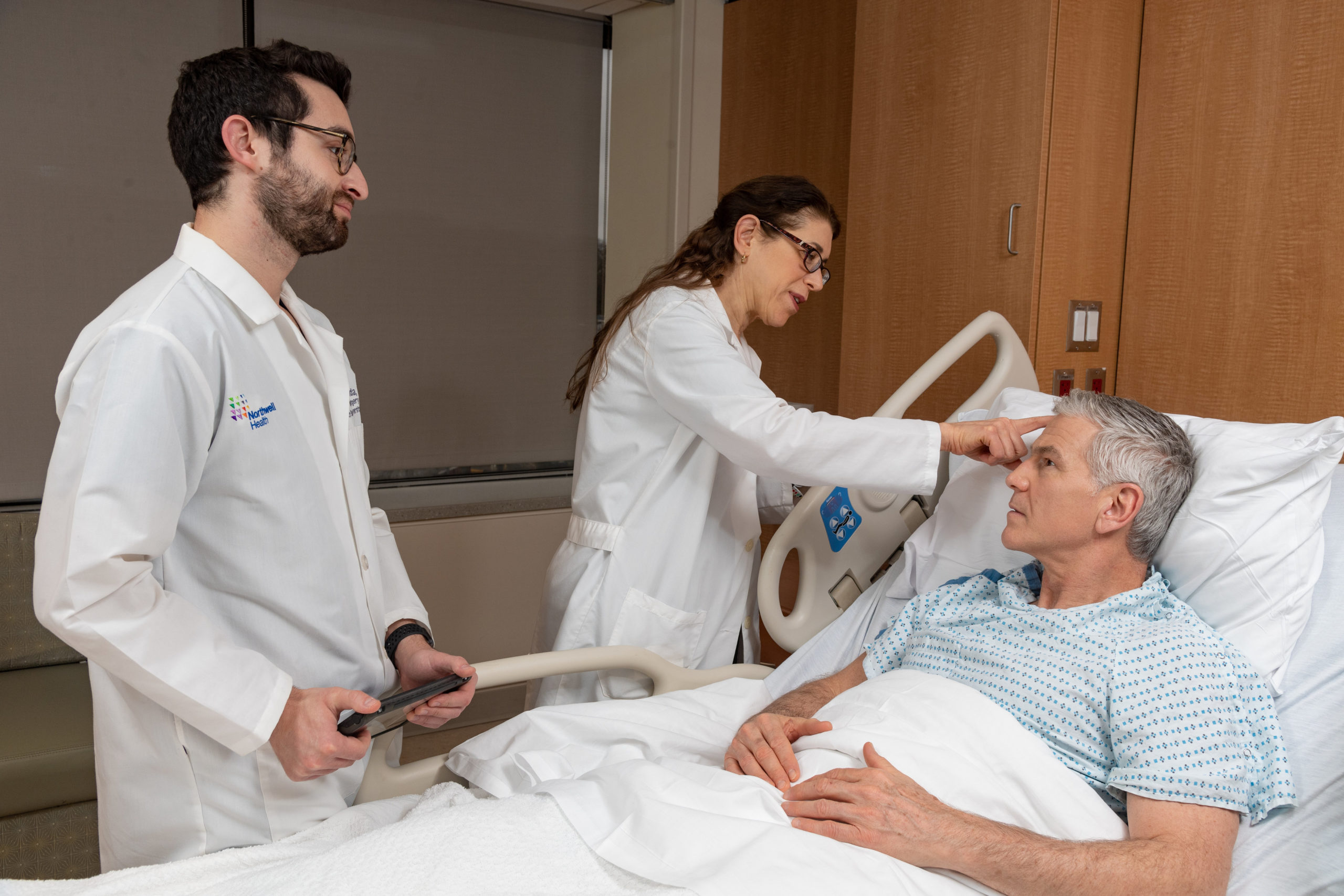Neuroscientists at Northwell Health’s Institute for Neurology and Neurosurgery and the Feinstein Institutes for Medical Research are participating in a multi-centered, randomized, Phase 3 research study entitled “Brain Oxygen Optimization in Severe Traumatic Brain Injury (TBI),” also referred to as the BOOST-3 trial. The study will be conducted at North Shore University Hospital (NSUH), a Level I trauma center.
The purpose of the study, funded by the U.S. National Institutes of Health (NIH), is to learn if either of two strategies for monitoring and treating patients with severe TBI in the intensive care unit (ICU) is more likely to help them recover. At NSUH, the study will be led by Dr. David Ledoux, the hospital’s chief of neurocritical care, and Dr. Jamie Ullman, director of neurotrauma.
In one treatment strategy, doctors concentrate on preventing high intracranial pressure (ICP) caused by a swollen brain. In the other strategy, doctors try to prevent high ICP and low brain oxygen levels.
“Both of these treatment strategies are used in standard care,” Ullman said. “However, it is not known if one treatment is more effective than the other. The purpose of the study will be to determine the safety and efficacy of a strategy guided by treatment goals based on both ICP and brain tissue oxygen as compared to a strategy based on ICP monitoring alone.”
The study will include adults and teenagers older than 14 years with severe TBI requiring admission to the ICU with brain monitoring.
“Both strategies help doctors adjust treatments, including the kinds and doses of medications, the amount of intravenous fluids administered, ventilator settings, the need for blood transfusions and other medical care,” Ledoux said. “The results of the BOOST-3 study will help us better understand if one of the treatment methods improves survival and reduces disability.”
Because head injury is a life-threatening condition requiring immediate treatment, some patients will be enrolled without consent if a family member or other representative is not readily available. Every attempt will be made to locate family prior to enrollment to allow them to decide about the patient’s participation in the study.
Before the study starts at NSUH, one of the requirements to be a participating site is to engage in community outreach efforts to provide information, answer questions and get community members’ input about this important clinical research. NSUH has reached out to the community at Northwell Health-sponsored events over the past four months.
TBI is the leading cause of death and disability in children and adults up to 44 years of age. Every year, approximately 3.5 million Americans sustain a TBI, of which 50,000 die and another 300,000 are hospitalized and survive the injury.
“The BOOST trial is an exciting, recent example of our commitment to advance research into clinical practice by pursing our mission to produce knowledge to cure disease,” said Kevin J. Tracey, MD, president and CEO of the Feinstein Institutes.
For more information about the BOOST-3 clinical trial, go to: https://siren.network/clinical-trials/boost-3.
Submitted by Northwell Health.



